THE INAUGURAL GLOBAL CONGRESS FOR LINEAR INFRASTRUCTURE AND ENVIRONMENT
Wendy Collinson-Jonker, Endangered Wildlife Trust, wendyc@ewt.org.za The Endangered Wildlife Trust and the International Conference on Ecology and Transportation, otherwise known as ICOET, hosted the virtual Global Congress for Linear Infrastructure and Environment, on 20 and 21 September. With over 100 delegates from 24 different countries, the congress, aimed to provide a new opportunity for a global gathering that includes both the intellectual content of a scientific conference and the international reach of the United Nations and Sustainable Development Goals.
Linear infrastructure is essential for connecting society: our systems of roads, railways, pipelines, and power lines all serve to link our cities, developments and resources, and our energy and water supplies. Therefore, it is perhaps ironic that linear infrastructure does exactly the opposite for natural systems – by crisscrossing landscapes, linear infrastructure serves to fragment ecosystems, isolate populations, and reduce natural flows. Roads, railways, fences, and power lines constrain animal movements. They pose direct threats to species from collisions and indirect threats by increasing access by people to previously untapped resources.
Currently, there are five active continental conferences. The Infrastructure and Ecology Network Europe, or IENE, was established in 1996, whilst the International Conference on Ecology and Transportation, or ICOET, started in 1999, with a primary focus on the United States and North America. Both conferences presented the development of a new field of ecology. In 2009, the Australasian Network for Ecology and Transportation (ANET) commenced, followed by the Congresso Iberoamericano de Biodiversidade e Infraestrutura Viária or CIBIV in 2010 and then the newest, the African Conference for Linear Infrastructure and Ecology in 2019.
Each of these conferences has representatives from industry (e.g., planning, engineering, construction), representatives from transport, regulatory, planning, and environmental agencies at all levels of government, research institutions, non-government organisations, environmental consultants, and community groups (e.g., wildlife carers, environmental groups). While these conferences promote international participation, they are inherently focused on the work and issues important to their host continent, but they have joined forces for the Global Congress for Linear Infrastructure and Environment. GCLIE is intended to complement the existing continental conferences on transportation ecology by providing a platform that focuses on broader, higher-level, global issues and policies that can influence national and international knowledge sharing and bring about positive change. The Global Congress will facilitate truly global opportunities for conversation and debate issues that create bridges between and push the boundaries outside of our respective continental conferences, aiming to improve our understanding of world issues and influence action at this scale.
Building on the achievements of the continental conferences, the event also aims to develop tools (e.g., scientific briefs on particular topics) for influencing global decision-makers to aim for more sustainable new and existing linear infrastructure. The event is organised back-to-back with ICOET held virtually from 22-30 September 2021.
After nearly a year and a half of the global pandemic, we’re all extremely familiar with online engagement, and the online format has certainly enabled the participation of people from afar and will allow for constructive interaction among participants. By bringing together a diverse range of participants from across the world, GCLIE is fostering a community of practice that will collectively answer some of the most challenging questions of our time.
“I attended the GCLIE as a precursor to the 2021 ICOET conference. This congress was a truly comprehensive global overview of the factors fragmenting habitat, disturbing ecological functions, and impeding the necessary and natural movement of wildlife at multiple scales. Throughout the congress the conceptual framework of thinking globally and acting locally manifest in the case studies and policy level presentations and discussions. The GCLIE was an opportunity to identify commonalities, both great and small, that transcend geopolitical boundaries and align practitioners, academics, and policy-makers for success. The virtual format facilitated global participation and representation. Very well done. I look forward to the next GCLIE.”
– Chris Slesar | Environmental Resource Coordinator, Vermont Agency of Transportation, USA
“GCLIE was the first opportunity to discuss research and policy related to mitigating the impacts of linear infrastructure at a global level – involving a high diversity of researchers and practitioners with experience from all around the world. It felt reassuring to notice that different continents face similar challenges and to discuss together how we can all collaborate to overcome them.”
Dr. Fernanda Z. Teixeira, Postdoctoral researcher, Ecology Graduate Program, Federal University of Rio Grande do Sul (UFRGS)
“I had the pleasure this week to participate in the coming together of a global forum on transportation and the environment. The world is being transformed at an unprecedented speed through the construction of roads, railways, pipelines and other transportation infrastructure, and GCLIE must play a pivotal role in ensuring the infrastructure that is planned and built today has a positive impact on society and the natural environment. The need for GCLIE has never been more critical – and I am excited to see how GCLIE develops in the years ahead.”
Dr Rodney van der Ree, National Technical Executive – Ecology, WSP Australia Pty Limited
GCLIE 2021 not only provided a necessary bridge between existing continental communities of practice but begun the critical work of leveraging national and continental solutions to generate a global movement for ecologically sustainable linear infrastructure. Sarah Chiles, Landscape Infrastructure Advisor – Kenya, Ewaso Lions & Grevy’s Zebra Trust
